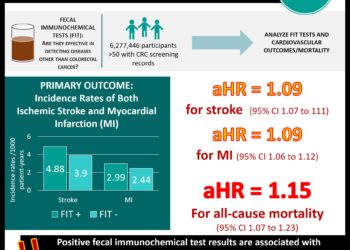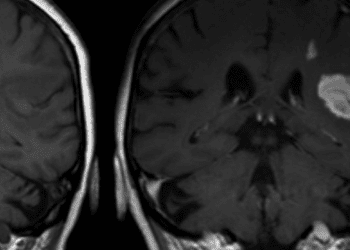Patient Basics: Fecal Occult Blood Test
Originally published by Harvard Health.
What Is It?
A fecal occult blood test checks stool samples for traces of blood that cannot be seen with the naked eye. This test is also called a stool guaiac or Hemoccult test. It is a simple chemical test of a stool sample that involves about five minutes of preparation time.
Because the fecal occult blood test can detect bleeding from almost anywhere along the length of the digestive tract, several conditions can cause the result to be positive. They include esophagitis, gastritis, peptic ulcer disease, stomach cancer, ulcerative colitis, colorectal cancer or polyps, and hemorrhoids. The result also can be positive when someone has been taking aspirin or other medications that irritate the digestive tract.
What It’s Used For
The fecal occult blood test is used as a screening test to detect colorectal cancer, especially when the cancer is in its early stages and is not causing any symptoms. Doctors often recommend an annual fecal occult blood test for adults beginning at age 50. If you have a higher risk of colorectal cancer because of a personal or family history of colorectal cancer or polyps, your doctor will probably recommend colonoscopy to screen for cancer.
Your doctor may recommend this test if he or she suspects that you are bleeding from somewhere in your digestive tract. For example, a positive fecal occult blood test may help to explain why a person has developed a low level of red blood cells (anemia).
Preparation
Do not begin your fecal occult blood test when you have active bleeding from hemorrhoids or an anal fissure or when there is blood in your urine. For women, do not begin testing during your menstrual period or during the first three days after the end of your period. Starting seven days before your fecal occult blood test, stop taking aspirin and nonsteroidal anti-inflammatory drugs (NSAIDs), such as ibuprofen (Advil, Motrin and others) and naproxen (Aleve, Naprosyn and others). Starting 72 hours before the test, make these dietary changes:
- Avoid taking more than 250 milligrams of vitamin C per day.
- Avoid eating red meat (beef or lamb), including liver and processed meats or cold cuts.
- Avoid eating raw fruits and vegetables, especially melons, radishes, turnips and horseradish.
These foods and supplements can produce a positive fecal occult blood test even when there is no bleeding from the digestive tract. This is called a false-positive test.
Toilet-bowl cleaners may affect the results of the test, too, so they should be removed from the toilet that you will be using to collect stool samples for testing.
How It’s Done
Your doctor or the testing laboratory will give you a kit to use for collecting stool samples for the fecal occult blood test. Keep this kit in your bathroom at home or carry it with you while you are away from home during the three days that you have to collect stool samples. Write your name and other required information on the front of the collection slides. There are several different testing kits available, so be sure to read the instructions carefully before you begin.
Flush the toilet twice before your bowel movement. After you move your bowels, use one of the small wooden sticks from the kit to collect a small sample of stool. Place this stool sample on the sampling slide. Repeat this procedure for two more days or for two more bowel movements, whichever way your doctor tells you. Use a different card each day. Between samplings, cover the slides and store them away from heat, light and strong chemicals such as bleach and iodine.
When you have collected all three samples, seal the test envelope and return the kit to your doctor or testing laboratory. Do not send stool samples in the mail, unless you have a special envelope from your doctorn.
Follow-Up
Your doctor will likely send you a letter in the mail informing you of the result. If you have not received a letter within two weeks of submitting your samples, call your doctor’s office or the laboratory to obtain the results. If your test is positive, your doctor usually will recommend an additional screening procedure such as colonoscopy.
Risks
The fecal occult blood test is safe and painless.
When To Call a Professional
Call your doctor if you experience a change in your bowel habits, including diarrhea or constipation, during the testing period.
Additional Info
National Library of Medicine (NLM)
8600 Rockville Pike
Bethesda, MD 20894
Phone: 301-594-5983
Toll-Free: 1-888-346-3656
Fax: 301-402-1384
http://www.nlm.nih.gov/
American Cancer Society (ACS)
1599 Clifton Road, NE
Atlanta, GA 30329-4251
Toll-Free: 1-800-227-2345
http://www.cancer.org/



